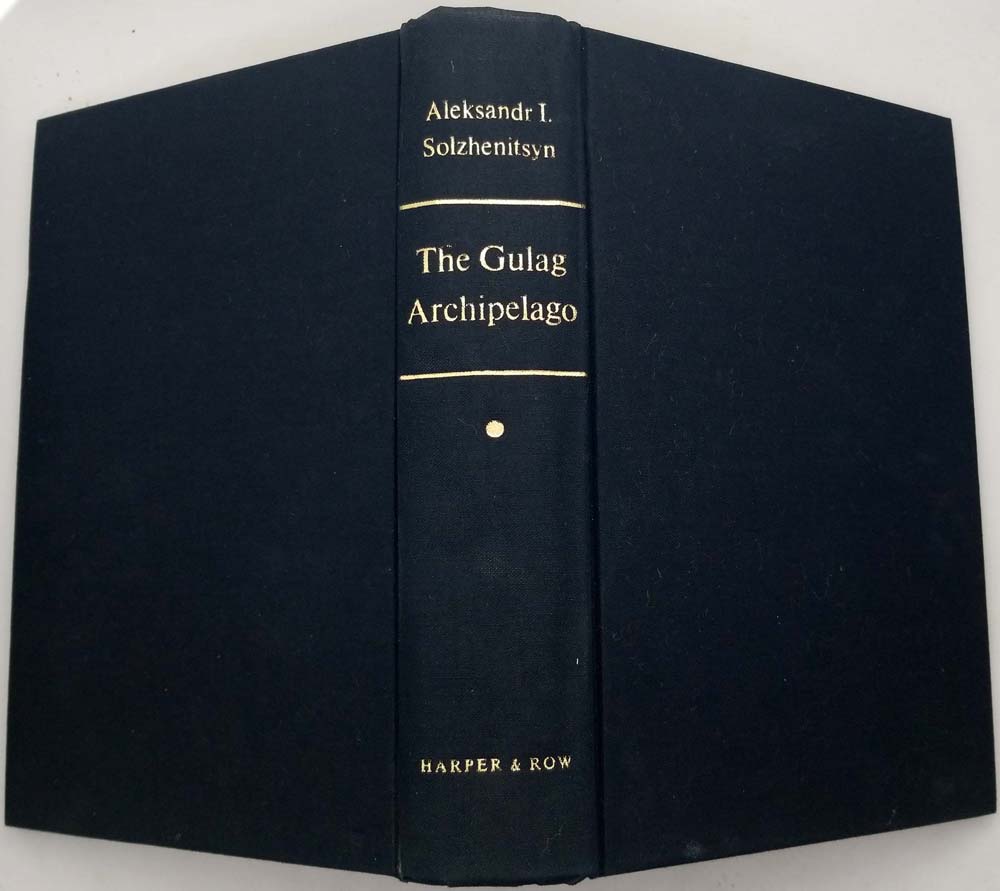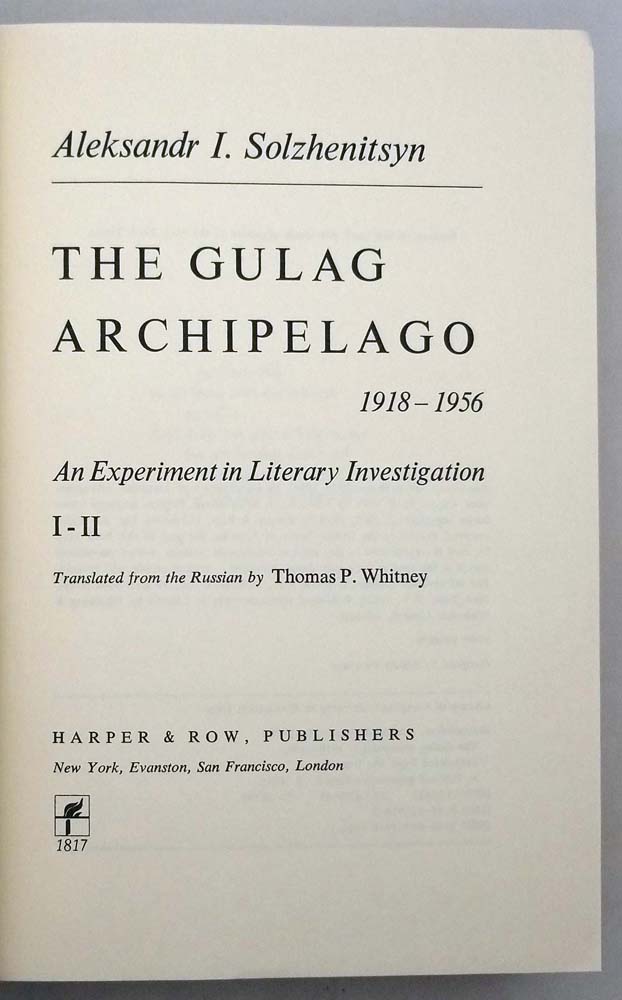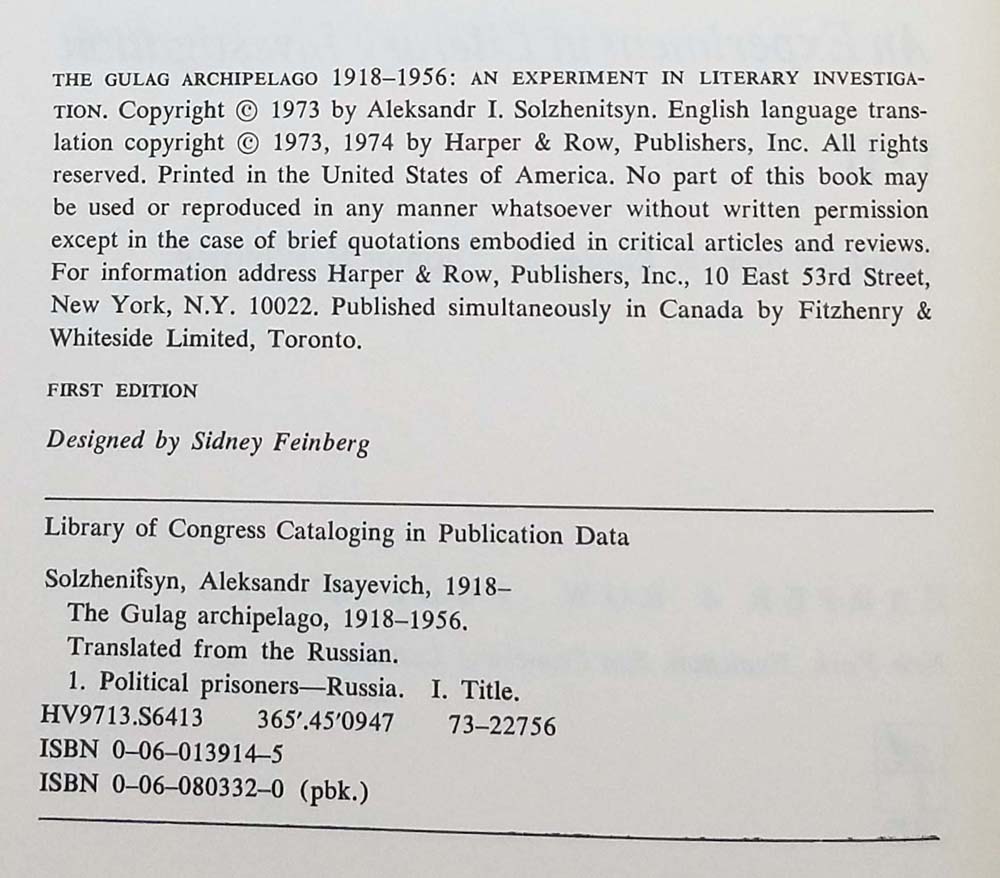The Gulag Archipelago (1973) by Aleksandr Solzhenitsyn is a monumental work of historical and literary significance, exposing the brutal reality of the Soviet forced labor camp system through firsthand testimony, survivor accounts, and the author’s own harrowing experiences as a prisoner. Written in secret between 1958 and 1968, the book is structured as a sprawling, three-volume “experiment in literary investigation” that maps the Gulag (the Soviet network of prisons and labor camps) as an invisible “archipelago” of suffering within the USSR.
Solzhenitsyn chronicles the machinery of repression—from arbitrary arrests and torture to the dehumanizing conditions of the camps—while weaving in searing philosophical reflections on totalitarianism, moral resistance, and the fragility of human dignity. His prose shifts between documentary precision, dark satire, and tragic lyricism, revealing how the Soviet state crushed millions of lives under ideological purges, forced labor, and systematic starvation.
Smuggled to the West and published abroad, The Gulag Archipelago became a Cold War landmark, shattering Soviet propaganda and earning Solzhenitsyn exile from his homeland. More than a historical record, it stands as a universal warning about the dangers of unchecked state power and the resilience of the human spirit.









